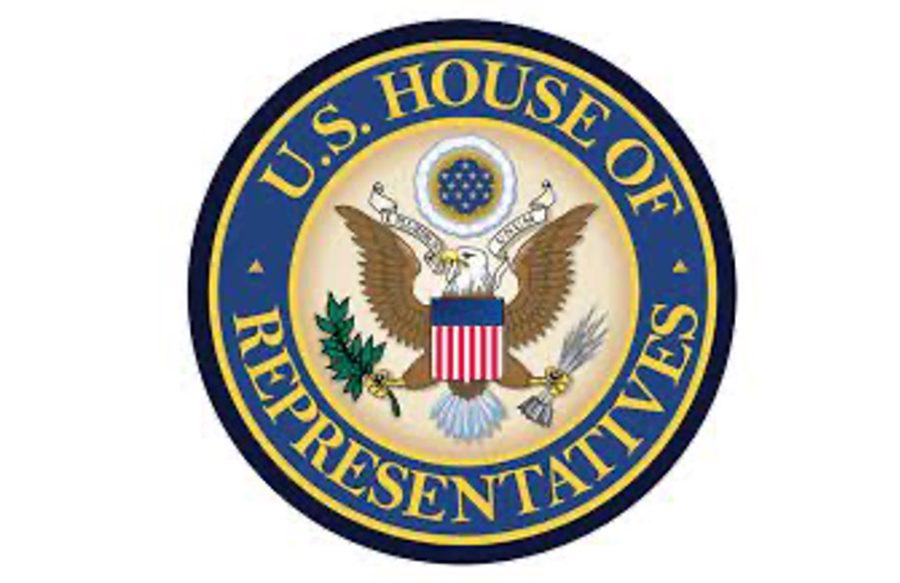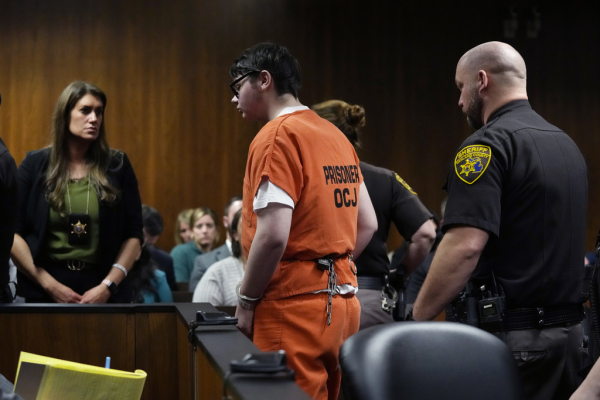Speaker of the House Election: Deliberation and delay
Upon Pelosi’s resignation, Republican representative of California Kevin McCarthy and Democratic representative of New York Hakeem Jeffries were the two leading candidates for Speaker of the House.
On Jan. 7, McCarthy swore in the 434 members of the House, seating the 118th Congress. McCarthy’s position will continue for the next two years. McCarthy succeeded former Speaker Nancy Pelosi, changing the House agenda considerably.
Democrat Pelosi served from 2007 to 2011, and from 2019 to 2023 as the 52nd Speaker of the United States House of Representatives. Pelosi currently represents the 11th congressional district of California.
Upon Pelosi’s resignation, Republican representative of California Kevin McCarthy and Democratic representative of New York Hakeem Jeffries were the two leading candidates for Speaker of the House.
Fifteen ballots passed for about a week until McCarthy was named Speaker of the House. However, his win was not without compromises and promises.
The election had much on the line for some. Since the Republicans’ predicted “red wave” during the November elections of 2022 did not occur and the current president’s party is Democrat, many relied on McCarthy’s win.
Although the 2023 election of the House speaker followed the trend of being Democratic representative versus Republican representative, there are vast possibilities as to who could be the Speaker of the House.
Deborah Horn, Pascack Hills United States History I Teacher and Debate Coach, was asked about the Constitution in relation to the House speaker election.
“In the Constitution, all it says is that they elect a Speaker of the House; it has always been assumed that [the speaker] was going to be a member of the House of Representatives, but there is nothing written there. So, they could have elected an outsider, and in fact, there were . . . thinkers who thought that the solution to this problem was to be a retired Republican or someone who isn’t in the fray, that could sort of oversee things,” she said.
The election results were by no means a landslide, the process being one of the longest in Speaker of the House election history. McCarthy won with 216 votes, and Jeffries lost with 212 votes.
During McCarthy’s post-victory speech, he recited his plans as House speaker, along with some light-hearted statements to Minority Leader Jeffries, an example being, “our debates will be passionate and they will never be personal.”
Christopher Volk, World History Teacher and History Club Advisor, reflected on the election and the closing speeches.
“It was an exciting moment to follow the speakership vote. Understandably, many labeled it chaotic and uncertain, but . . . the members of Congress, as equal representatives of the people, have an obligation to debate and vote amongst themselves for a collective House leader. It was a pure example of a Democratic Republic government in action,” he said.
Volk also compared the speech to George Washington’s Farewell Address.
“After listening to the speeches of Congressman Hakeem Jeffries and Speaker McCarthy, I was instantly reminded of George Washington’s 1796 farewell address to the nation in which he states: ‘However [political parties] may now and then answer popular ends, they are likely in the course of time and things, to become potent engines,’” he said.
McCarthy’s win, which led to speeches and celebrations, was not possible without his concessions to his Republican critics. Although they are a small group, the concessions used to persuade their vote for McCarthy could increase their influence and leverage over the House agenda.
Reportedly, McCarthy promised the minority of Republicans that they would hold high-ranking seats on committees, an example being the influential Rules Committee. McCarthy agreed to allow representatives to read bills for a 72-hour window before the House votes, which aligns with McCarthy’s general promises of efficiency. Among many other concessions and announcements varying from FBI regulations to leadership intervention protocols, McCarthy pledged to vote on term-limit legislation that would affect all members of Congress.
McCarthy also conceded the power to any single member to introduce a resolution to unseat the House speaker. Although this concession was made for the far right republicans to keep McCarthy in check, it is open to all representatives. Thus, the Democrats could benefit and challenge McCarthy with the possibility of ousting him.
Horn’s final takeaways involve hindsight realizations, recommendations, regrets, and reflections.
“I think we have to learn not to take things for granted about the way our government works and that just because people have always done things a certain way doesn’t mean that we can rely on people always doing things in a certain way. I think [the election] should tell us that elections have consequences,” she said.

Paige Geanopulos is a senior at Hills. She joined the Trailblazer her freshman year as a staff writer, became the editor for the In-Depth section her sophomore year, and was the editor for the School News section her junior year. This year, Geanopulos looks forward to being the publication's Editor-in-Chief and continuing to write, edit, and manage stories for the Hills community.
Fun fact: Geanopulos has gone cliff diving in Naxos, Greece!













































Carlos Rendo • Jan 18, 2023 at 9:48 PM
Another excellent article from one of our stellar students.